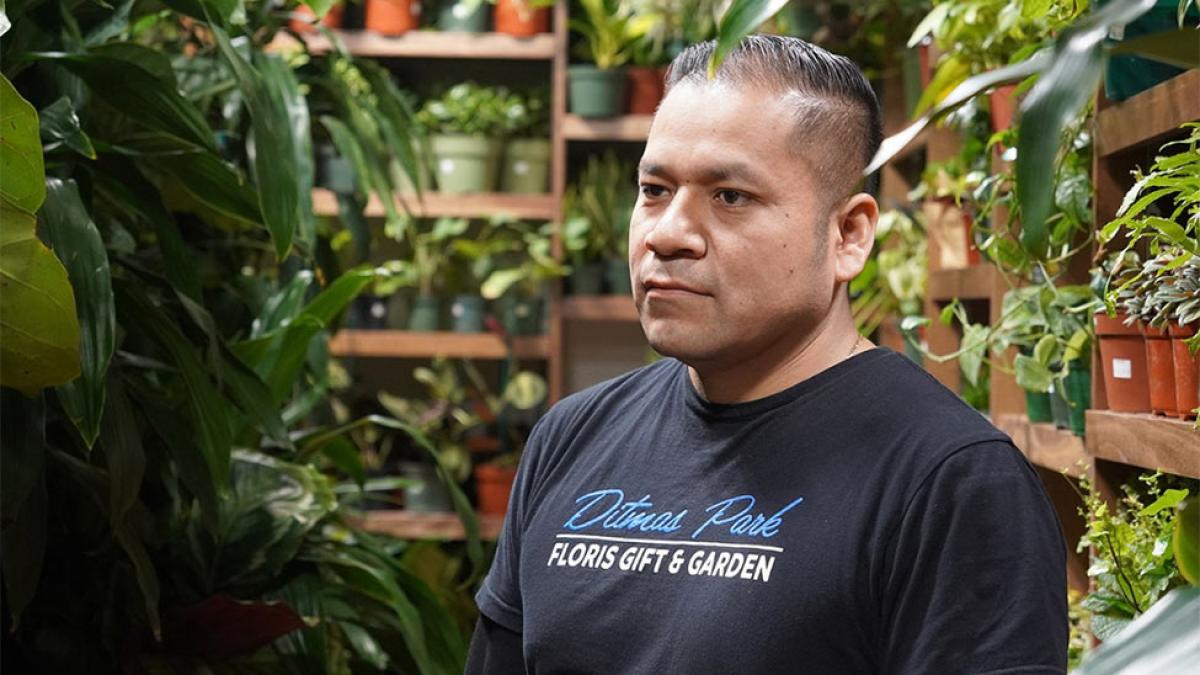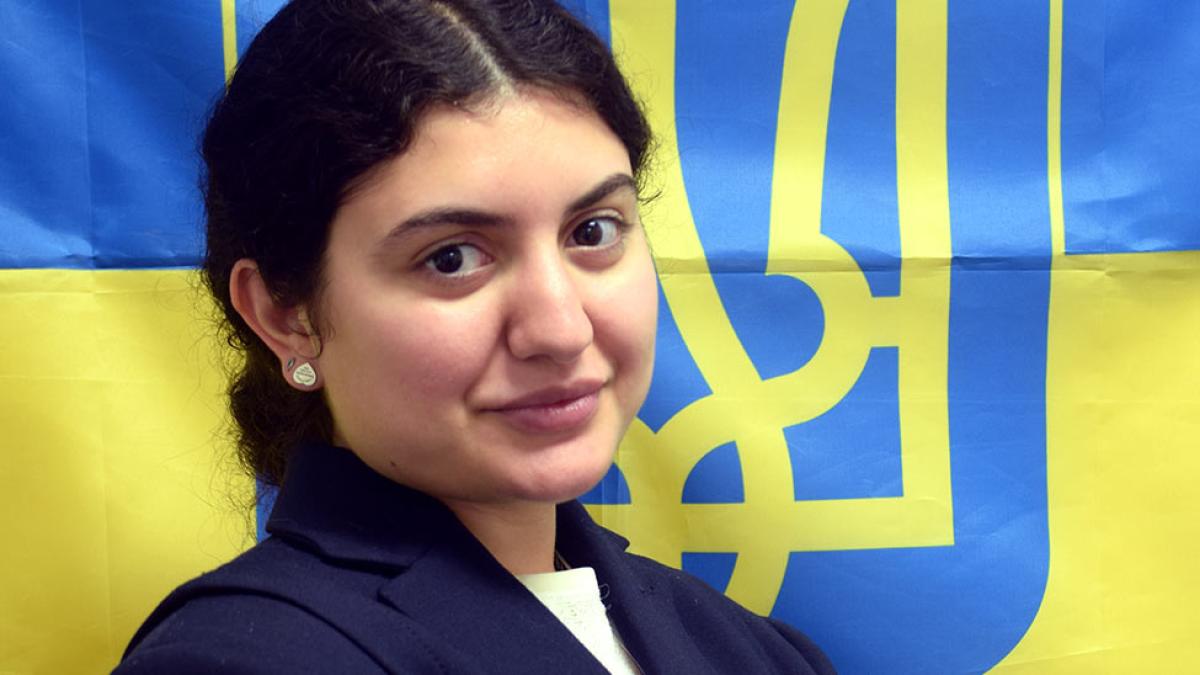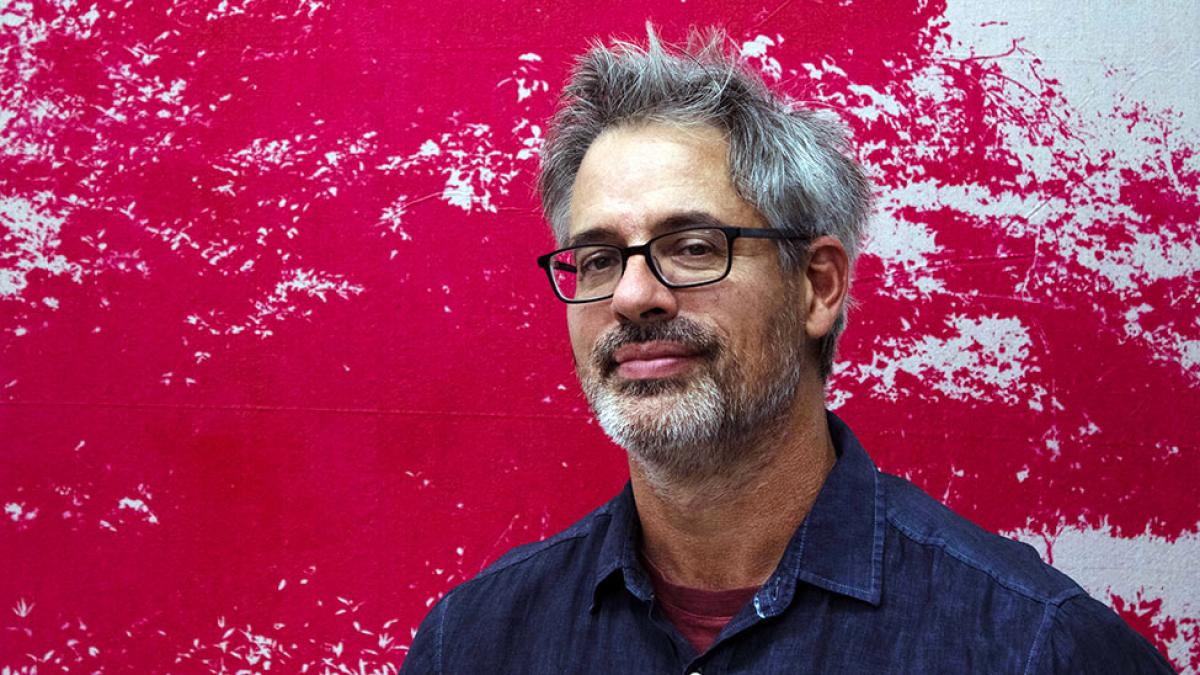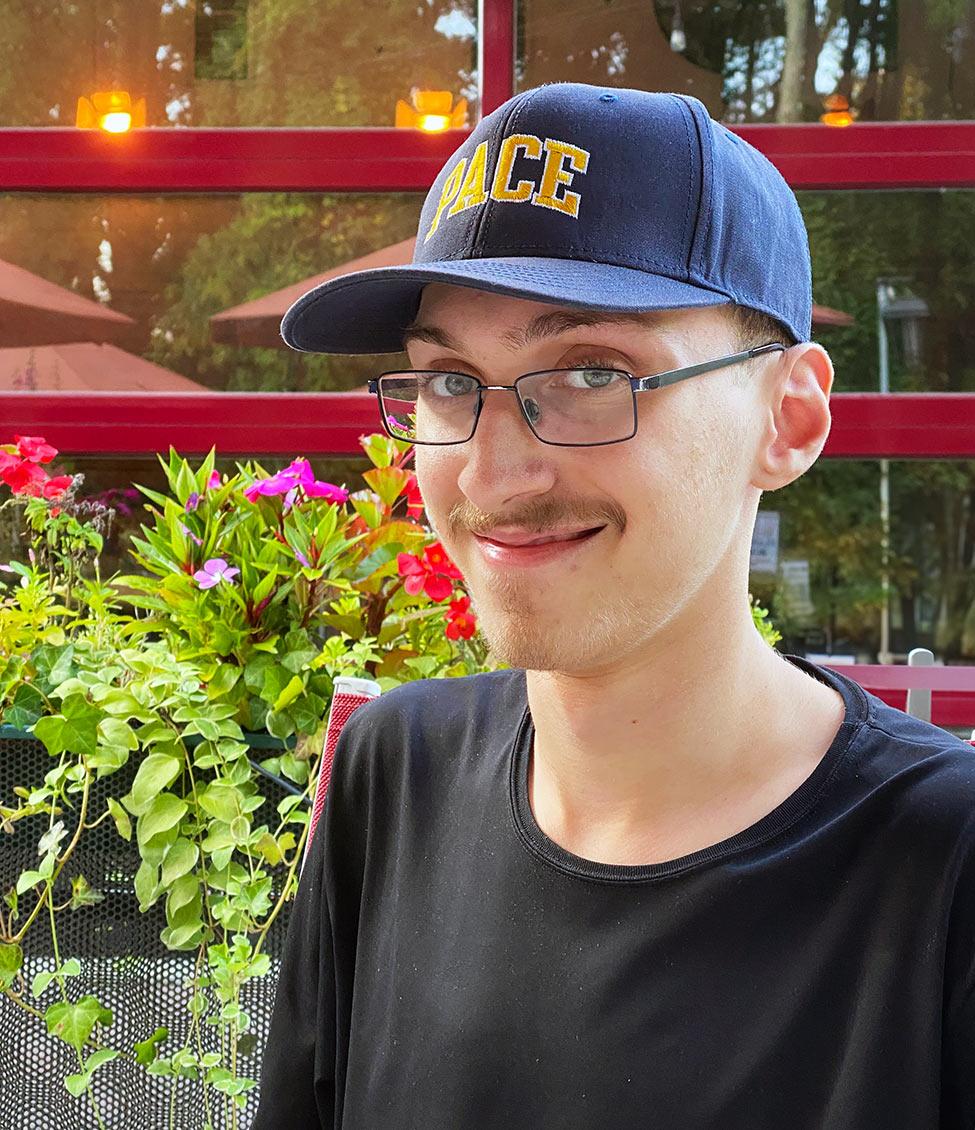
Visualizing Change: Q+A with Jack Nierenberg '25
Jack Nierenberg '25, an Art major and vice president of the transportation advocacy group Passengers United, shares insights on his impactful advocacy work and the art of blending economics and photography.


Jack Nierenberg
Class of 2025
Jack Nierenberg serves as vice president for transportation advocacy group Passengers United and was recently featured on NY1 after speaking at a Metropolitan Transit Authority (MTA) hearing on fare hikes.
What inspired you to serve in this way and what are you most proud of about your work?
As a native New Yorker, I have always been passionate about our public transportation, which I rely on every day. When I learned that Passengers United (a group that I had never heard of before) was able to get regular train service restored after it had been drastically cut, I knew I had to get involved. My volunteerism began with developing a brand, but I soon became active with the substance of the advocacy work. Many of Passengers United’s accomplishments are small, yet they make a profound difference for transit riders, particularly lower-income riders in the outer boroughs and regions, seniors, and those with disabilities. For example, I effectively petitioned the MTA to restore a critically important evening train in eastern Long Island that many essential workers rely on, something I am very proud of. Our work continues to strive to ensure that everyone has transit options that work for them.
How did you become interested in pursuing the Bachelor of Arts in Art?
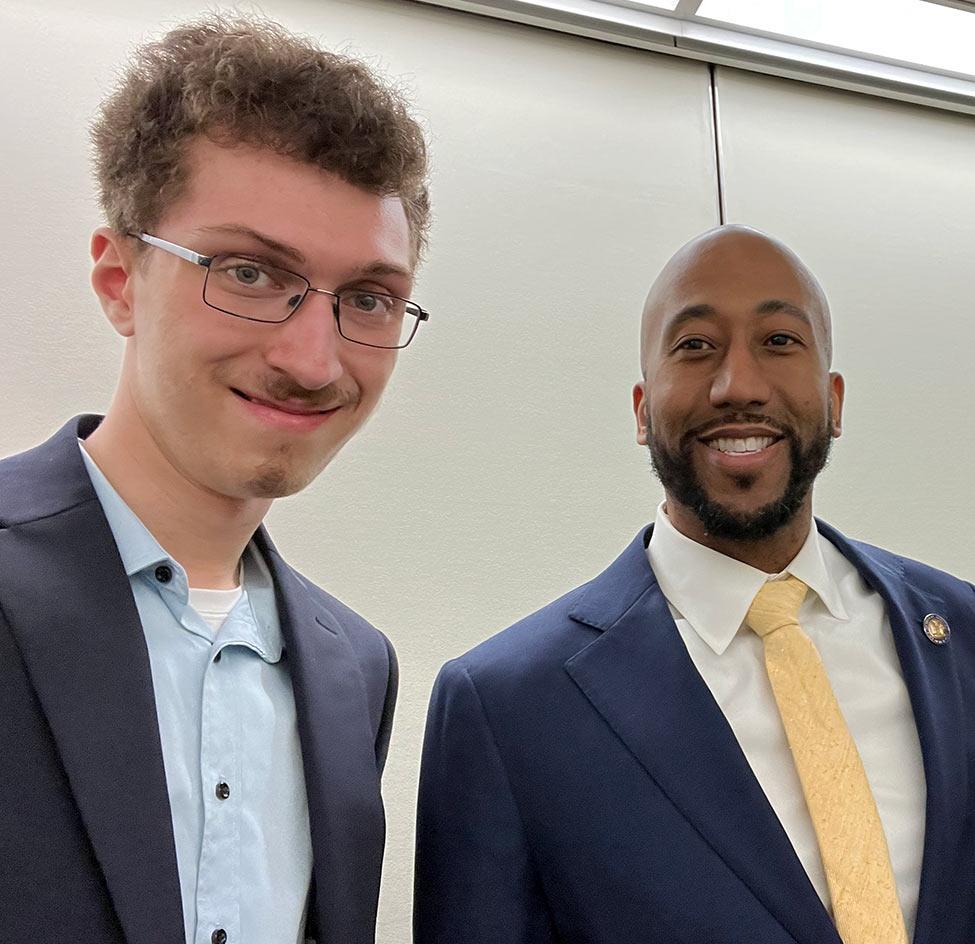
I already had a background in film and video, especially since my father is a noted documentary filmmaker and, for many years, have been editing professionally both for him and others. I came to Pace, however, as an undecided student, as I had a feeling the answer to “what do I want to do for the rest of my life?” would change. I already had an interest in graphic design, so when I took two graphic design classes during my second semester, I knew this was the direction I wanted to go in my undergraduate studies. I also discovered a love for economics and have thus declared a minor in it.
Why did you choose to attend Pace?
I wanted to stay in New York, and when Pace accepted me into the Pforzheimer Honors College, I found the opportunity very compelling. I was also drawn by Pace’s overall atmosphere, that of a modern urban campus that still manages to have smaller, more intimate classes.
During the spring 2023 semester, you participated in At a Point of Change II, an outdoor student photography exhibition, which, through the course, Seeing the World Differently...Through Economics and Photography, combined economics with photography to represent the United Nations’ Sustainable Development Goals, set to be achieved by 2030. Please describe your experiences with this course and exhibition.
Throughout the course, taught by Professors Anna Shostya and Inbal Abergil, we were given several assignments to photographically document economic issues around us. Each assignment had an underlying theme (e.g., economic growth or discrimination), but the open-endedness of the assignments allowed us to cover more specific topics that, as students, we were passionate about. Ultimately, we each chose two or three photos for the exhibition that, together, created the most impactful stories. Predictably, I went right in to discuss the many prevalent issues around transportation in New York City, focusing on how the inequities in our public transit disproportionately affect those who live in the outer boroughs of the city.
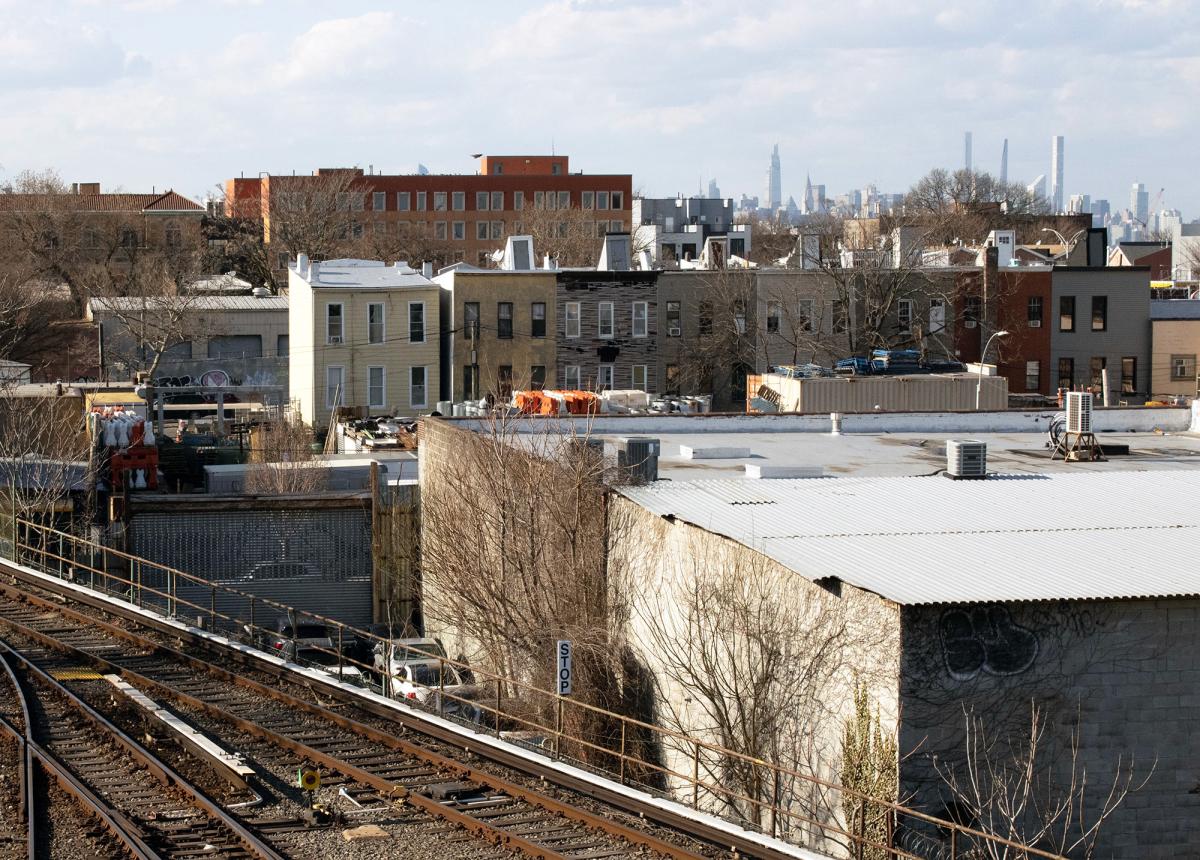
Overall, this class was an opportunity to not just gain valuable insight, but actively empathize with the people involved and hopefully inspire others to do the same. It is especially meaningful to know that my work, as well as that of my talented peers, is helping to spark necessary change in the world.
What have your experiences been like with the Art Department?
At this point, I’ve taken three graphic design and two photography classes in the Art Department, and I’ve been thoroughly enjoying them! My professors, Robert Wilson, Anders Goldfarb, and Jillian McDonald, are very knowledgeable and engaging, and the work itself has been very rewarding.
What other activities and organizations, if any, have you been involved with as a student?
I was involved with the Commuter Student Organization at Pace, which, at the time, was the only one on the New York City campus that specifically supported commuter students and advocated on their behalf. In fact, I was one of the students who got the organization back up and running in my second semester. Getting a student lounge on campus was a major thing we advocated for, and I am very pleased that one is finally in the works! I have also been somewhat active with the Student Government Association and look forward to checking out more clubs on campus, including the Photography Club.
“It is especially meaningful to know that my work, as well as that of my talented peers, is helping to spark necessary change in the world.”
What would you like to do upon graduation/what are your career goals?
I have decided to pursue a master’s degree in urban planning with a focus on transportation equity and am looking into various graduate programs for that.
What advice would you like to give to our current students?
Your passion can be expressed in a way that can not only benefit you but also better our world, and I believe it's very important to try to do that, even in small ways. Trust your intuition, don't lose hope, and keep persisting. However long it takes to realize your contribution to the world, keep reminding yourself that your existence is valuable.
More from Pace
Pace University will host At a Point of Change II, an outdoor student photography exhibition, which will be on view in front of One Pace Plaza from May 1–15 before moving to Pace’s Westchester campus until October 1.
Anastasia Khanukov, highlights her unique path from an interest in politics and international relations to a deep dive into economics and research, exploring topics that impact society profoundly.
This past summer, Clinical Assistant Professor of Art Derek Stroup, MFA, and Katie Romanyshyn ‘25, Film and Screen Studies, engaged in a faculty-student collaboration through the Amelia A. Gould Assistantship that expanded both of their creative boundaries and artistic possibilities in the most unexpected of ways.
Elisabeth Haub School of Law at Pace University Selects Five Students to Serve as Prestigious Sustainable Business Law Hub Student Scholars
The Elisabeth Haub School of Law at Pace University is proud to announce the selection of its second class of Sustainable Business Law Hub Student Scholars. The Sustainable Business Law Hub Student Scholars Program (“Hub Scholars Program”) was launched in early 2023 as a key component of the Sustainable Business Law Hub in creating the next generation of sustainable business and ESG (environmental, social and governance) lawyers. This year, five additional students have been selected to serve as Sustainable Business Law Hub Student Scholars (“Hub Scholars”) and will benefit from ESG internships and externships at prestigious law firms, financial institutions and businesses.
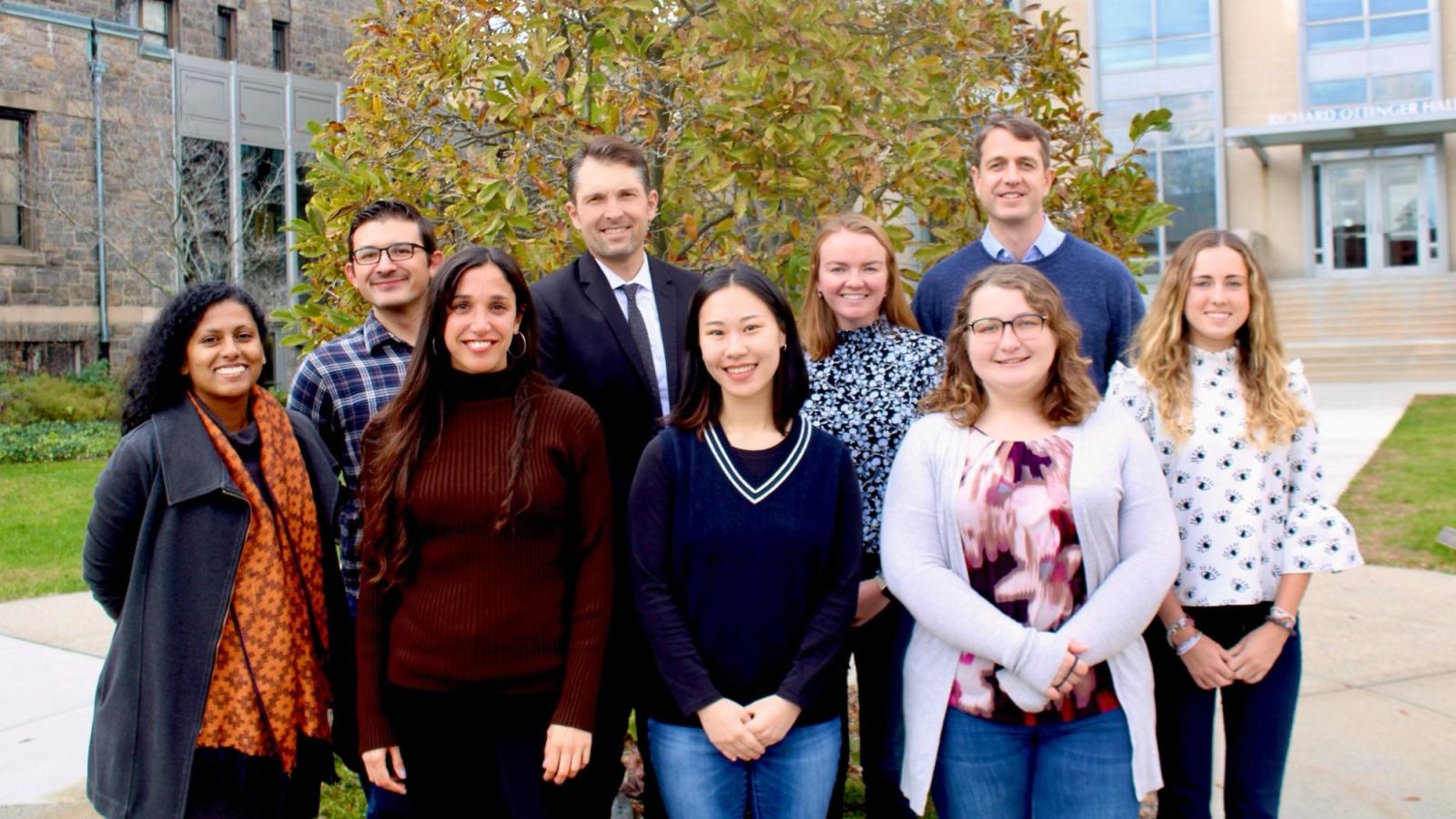
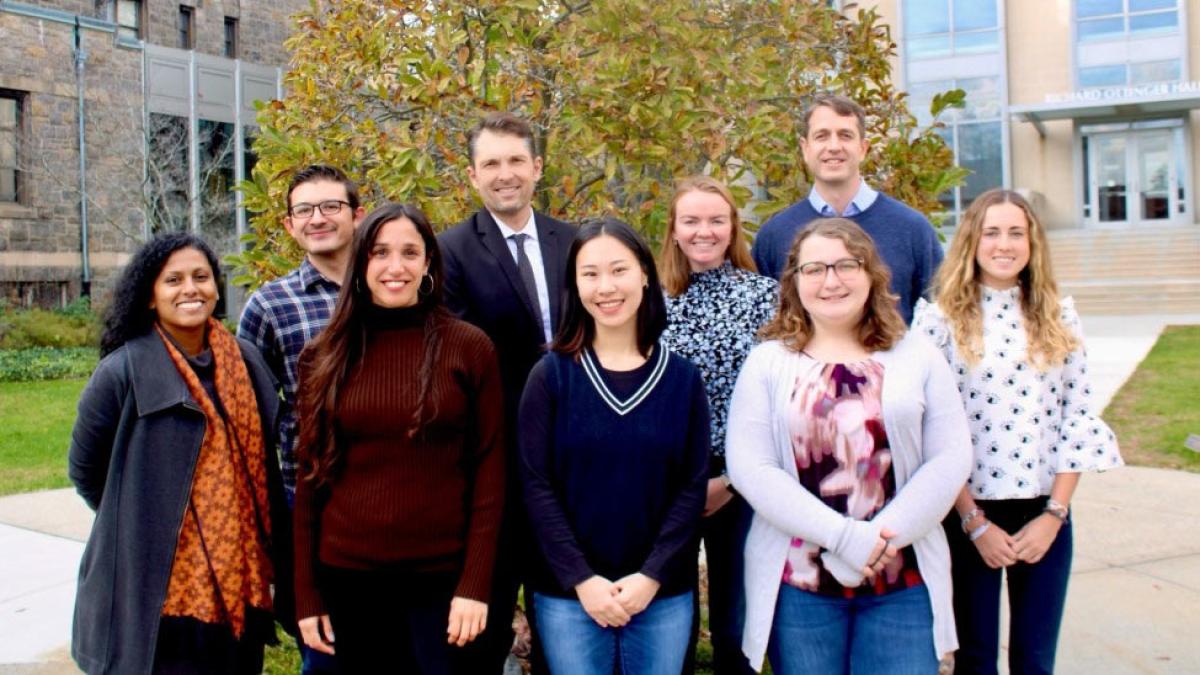
The Elisabeth Haub School of Law at Pace University is proud to announce the selection of its second class of Sustainable Business Law Hub Student Scholars. The Sustainable Business Law Hub Student Scholars Program (“Hub Scholars Program”) was launched in early 2023 as a key component of the Sustainable Business Law Hub in creating the next generation of sustainable business and ESG (environmental, social and governance) lawyers. This year, five additional students have been selected to serve as Sustainable Business Law Hub Student Scholars (“Hub Scholars”) and will benefit from ESG internships and externships at prestigious law firms, financial institutions and businesses.
“The Hub Scholars Program has been a tremendous addition to our Sustainable Business Law Hub,” said Jason Czarnezki, Kerlin Distinguished Professor of Environmental Law and Associate Dean of Environmental Law Programs and Strategic Initiatives, as well as inaugural Faculty Director of the Hub. “Last year’s inaugural class of six Hub Scholars gained ESG experience in a variety of settings, as interns at law firms, working with in-house legal teams, as well as within an NGO/government body. These experiences have allowed our top students interested in ESG and sustainable business to pursue these interests in a meaningful way.”
The Sustainable Business Law Hub Scholars Program is a curricular, scholarship, and mentorship program for students pursuing careers in sustainable business law and as ESG lawyers. The highly-selective program is designed for students with outstanding entrance credentials and a well-articulated passion for pursuing a career at the intersection of sustainability, business law, and environmental law. Hub Scholars will have the opportunity to receive practical training and experience in using the law to foster sustainable business practices through an internship/externship experience with an ESG practice group in a law firm, under the guidance of in-house counsel within a corporate entity, or within an NGO/government body working in the ESG space. Hub Scholars can also take advantage of targeted training workshops and programs that will prepare them for these externship experiences while working closely with a faculty supervisor and a professional mentor in the field to develop their interests and to identify networking and job opportunities.
Maggie Pahl ’23 was a member of the inaugural class of Sustainable Business Law Hub Student Scholars. She describes the experience as one of the most formative experiences during her time at Haub Law. “My participation as a Hub Scholar gave me the opportunity to meet and talk with lawyers and business leaders that are as equally passionate as I am about sustainable business,” said Maggie. “Being an inaugural scholar was especially exciting because the inception of the Hub came at a time when US and EU mandatory ESG disclosure laws were at their infancy. The textbooks and law review articles on novel sustainable business topics are being written (and re-written as international regulatory updates are released) at this very moment. Haub Law is at the forefront of producing a new generation of ESG lawyers, and I was fortunate enough to be part of that. The Sustainable Business Law Hub will produce great research and a strong network for future Haub Law students to tap into and the environment will benefit as a result.”
During the course of their studies, students receive curricular guidance that will allow them to receive the Advanced Environmental Law Certificate while pursuing courses relevant to sustainable business law, including the Business Law Path to Practice and the option to pursue an MBA with the Lubin School of Business as part of the joint JD/MBA program. Haub Law also offers courses on sustainable business law which include topics such as the definition of ESG, corporate responsibility and the triple bottom line; the role of the corporate board in achieving sustainability; social impact investing and ESG ratings; and ESG and climate disclosures, voluntary ESG reporting and risk management. Importantly, Hub Scholars will also have access to a wide network of Haub Law alumni, Lubin alumni, the Hub’s Advisory Board, and subsequent Hub Scholar alumni, who serve as mentors to new Hub Scholars.
Haub Law’s Sustainable Business Law Hub serves as an incubator space, student-training program, research endeavor, and think tank devoted to addressing global sustainability challenges through policy and research projects, relationships with the business community, and capacity building in private environmental governance. The Hub incorporates the three pillars of sustainability—economic, social and environmental welfare—into global business practices by engaging in research and policy development, improving public law and governance, and working with existing industry, the small business community, startups, and the community at-large to develop and employ innovative private environmental models and sustainability practices, such as those that promote a circular economy. Working hand-in-hand with faculty experts, students participating in the Hub receive practical training and experience in using the law to foster sustainable business practices.
Biographies of New Class of Hub Student Scholars
Ashley Han is a JD candidate at the Elisabeth Haub School of Law at Pace University, pursuing an Advanced Certificate in Environmental Law and a Business Law-Financial Compliance Path to Practice Track. She graduated from Syracuse University with a BA in Sociology. During her time at Haub Law, Ashley interned for Pfizer's Global Supply Division and Paul Weiss' Sustainability & ESG Advisory Practice. She also was a research assistant for Policy Research Director Thomas Bourgeois at the Land Use Law Center and a judicial intern for Judge Seibel at the United States District Court for the Southern District of New York. Ashley is currently serving as a Senior Associate for the Pace Environmental Law Review and a student intern for the Food and Farm Business Clinic.
Hailey Pedicano is a 3L at the Elisabeth Haub School of Law at Pace University, working towards a JD Degree with an Advanced Certificate in Environmental Law. Prior to law school, Hailey worked in marketing as a Project Manager, a role that frequently involved corporate stewardship communications. This largely drove her interest in becoming a Sustainable Business Law Scholar. Last year, Hailey co-led the Sustainable Business Panel featured at the New Directions in Environmental Law academic conference. This past summer, Hailey worked as a Summer Associate at Cuddy & Feder, LLP., and she spent her 1L summer as a Summer Law Clerk at the Federal Emergency Management Agency (FEMA). Currently, Hailey is a Land Use Scholar at the Pace Land Use Law Center and a Senior Associate on the Pace Law Review. She is also a Student Attorney for the Pace Environmental Litigation Clinic.
Joshua Briggs is a JD candidate at the Elisabeth Haub School of Law at Pace University, pursuing an Advanced Certificate in Environmental Law. He is a dedicated professional with a deep passion for energy policy and sustainability. Through his legal internships at organizations like the Natural Resources Defense Council, the Center for Progressive Reform, and the Pace Energy & Climate Center, he has gained valuable insights into the complexities of energy regulation and planning. An environmental storyteller, Joshua has a BA in digital media management and worked as a filmmaker prior to law school. Upon graduation, he hopes to combine his passions for the environmental and storytelling to advance a sustainable energy future.
Karina Krul is a JD candidate at the Elisabeth Haub School of Law at Pace University. Next Fall she will begin pursuing her master’s degree at Yale. Karina graduated in 2019 with a BS in Marine Biology from the University of New Haven. She completed her Honors Thesis on how environmental awareness effects attitude toward sustainable development, which she presented at the 2019 Society of Applied Anthropology Annual Meeting. She is currently a junior associate for Pace International Law Review, an intern with the Permanent Mission of Costa Rica to the United Nations, and a Law Clerk at Richman Law & Policy, an impact litigation firm that uses consumer protection law to hold corporations accountable for their environmental representations. Karina is passionate about a future that operates through inclusive, environmentally sound governance by ensuring every stakeholder gets a seat at the table. This summer, she will be a law clerk with Earthjustice.
Morgan E. Martin graduated from Rollins College in 2021 with a degree in Public Policy and Political Economy. Before she came to law school, she moved to Bali Indonesia to volunteer for an NGO where she taught English and sustainability lessons in a local village and worked on a coral reef restoration project. During her first year of law school, she volunteered at the Land Use Law Center. She is currently a Junior Associate for Pace Environmental Law Review and Vice-Chair for the Jeffery G. Miller National Environmental Moot Court Competition. This past summer she worked for a boutique corporate litigation firm in Manhattan, and she is still working for them part time. She will be a summer associate for Fenwick & West in their corporate practice. Morgan hopes to pursue a career in Sustainable Business practices, and perhaps gravitating towards the climate-tech field as it emerges.
Biographies of Returning Hub Student Scholars
Brianna Grimes is a 3L at the Elisabeth Haub School of Law at Pace University. She graduated in 2019 from Syracuse University with a BA in Biology. During law school, Brianna has joined many organizations and undertaken numerous leadership roles, including serving as Managing Editor of the Pace Environmental Law Review. In the past, Brianna has worked as a Maritime & International Law Extern with the United States Coast Guard Judge Advocate General, a Judicial Intern for Judge Richard Sullivan in the United States Court of Appeals for the Second Circuit, and as a Summer Associate in Baker Botts' Washington, DC Environmental, Safety, and Incident Response team. She was recently selected as a Knauss Fellow by the National Oceanic and Atmospheric Administration (NOAA) Sea Grant program and plans to move to Washington, DC in February to begin her one-year fellowship.
Brooke Mercaldi is a dual degree candidate at the Elisabeth Haub School of Law and the Yale School of the Environment, and she will graduate with her JD and Master of Environmental Management after the Fall 2023 semester. Brooke is currently at Yale where she is a Fellow in Yale Law School’s Law, Ethics & Animals Program and a Research Assistant in its Climate Change & Animal Agriculture Litigation Initiative. Throughout the dual degree program, Brooke has completed internships in the New York State Department of Environmental Conservation, United States District Court for the Southern District of New York, ACT Commodities Inc., and Save the Sound. Brooke also worked in Haub Law’s Land Use Law Center and Global Center for Environmental Legal Studies, and she served as a Research & Writing Editor for the Pace Environmental Law Review.
"Nightmare Scenario": Legal Scholars Alarmed Over Trump's "Plot To Abuse His Power" For Revenge
“This is the nightmare scenario that to millions of Americans is unfathomable but realistically possible,” Bennett Gershman, a former New York prosecutor and law professor at Pace University, told Salon. “It is also the scenario that millions of Americans look forward to with glee and the opportunity for retribution against the enemies of Trump.” Ultimately, the Supreme Court will “need to step up and prevent Trump’s plot to abuse his power,” Gershman said. Invoking the insurrection act and the ex-president’s plan to punish critics is “obviously unconstitutional.”
How The White Plains School District Is Addressing A Teacher Shortage
Pace’s School of Education is working with the White Plains School District to help address the teacher shortage.
Donald Trump Gives Evidence In Civil Fraud Trial
Professor Bennett Gershman speaks with ABC Australia regarding Trump’s trial.
Amity University And PACE University, USA Explore The Potential Areas Of Collaboration
Amity University Noida and Pace University explore potential areas of collaboration, India Education Diary reports. A high- level delegation from PACE University, USA, comprising of Dr. John Meletiadis, Assistant Dean, Lubin School of Business, Dr. Sonia Suchday, Chair of Psychology, Pace Board of Trustees Member and Prof. PV Viswanath, Graduate Program Chair, Department of Finance, visited Amity University Noida. The aim of the visit was to explore higher education opportunities for Amity students at PACE University and the areas, wherein the two Universities can collaborate.
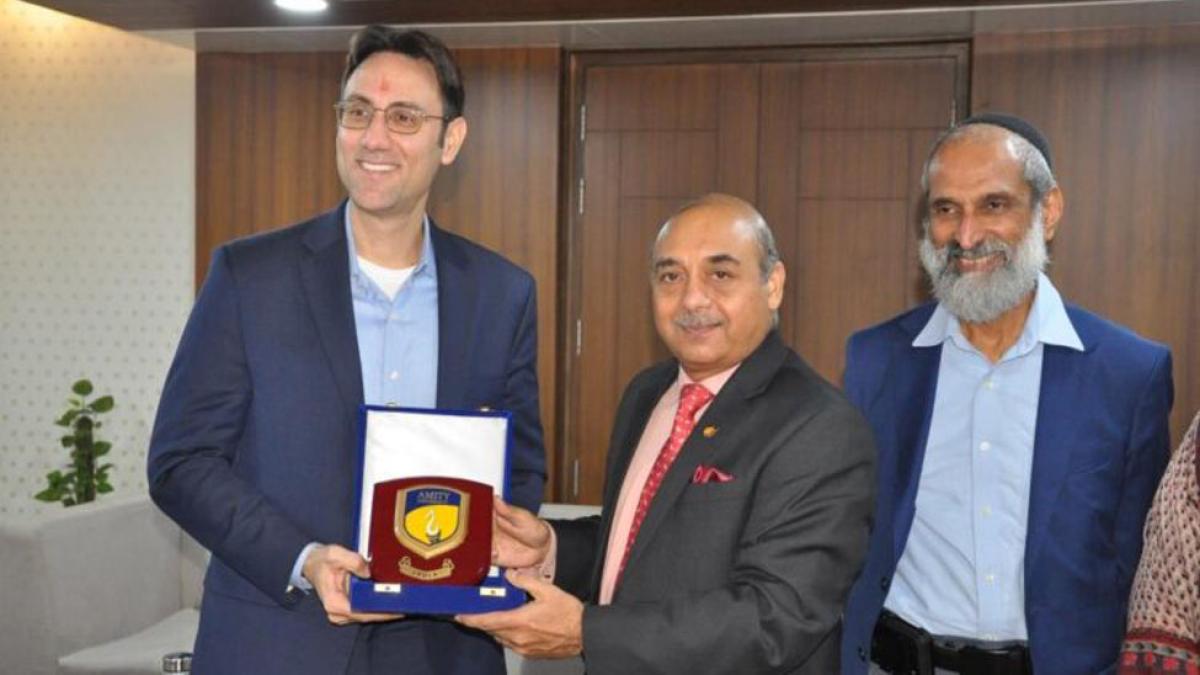
Medical Payments Coverage (MedPay)
Dyson Professor Sheying Chen speaks with WalletHub about medical payments coverage.
Early Voter Turnout Better Than Expected In Westchester
Pace University political science professor Kerriann Stout said local officials decide what infrastructure is repaired, how much funding is provided to schools, police and DPW's. "If you care about how fast 911 responds or care about where your water comes from or who is picking up your trash," said Stout.
Marsha on the Move: PaceDoc’s For the Love of Food
I recently had the incredible pleasure of watching a short film that was produced by a group of students at Pace University through a program called PaceDocs (including my friend Jerry McKinstry, Assistant Vice President of Public Affairs at Pace and, in this case, adult student, who introduced me to the film). The documentary For the Love of Food showcased the slow food movement – farm to table – in France and in Westchester. It makes the case for sustainability, and slow cooking and dining. The experience of watching this film, which showcases the most delectable ingredients and results, was sheer pleasure to the eyes, as well as my palette (well, in my imagination).
Military Times Names Pace University One of Nation's Best Schools for Veterans
For the third consecutive year, Military Times has named Pace University to its list of best schools for military service members and veterans.
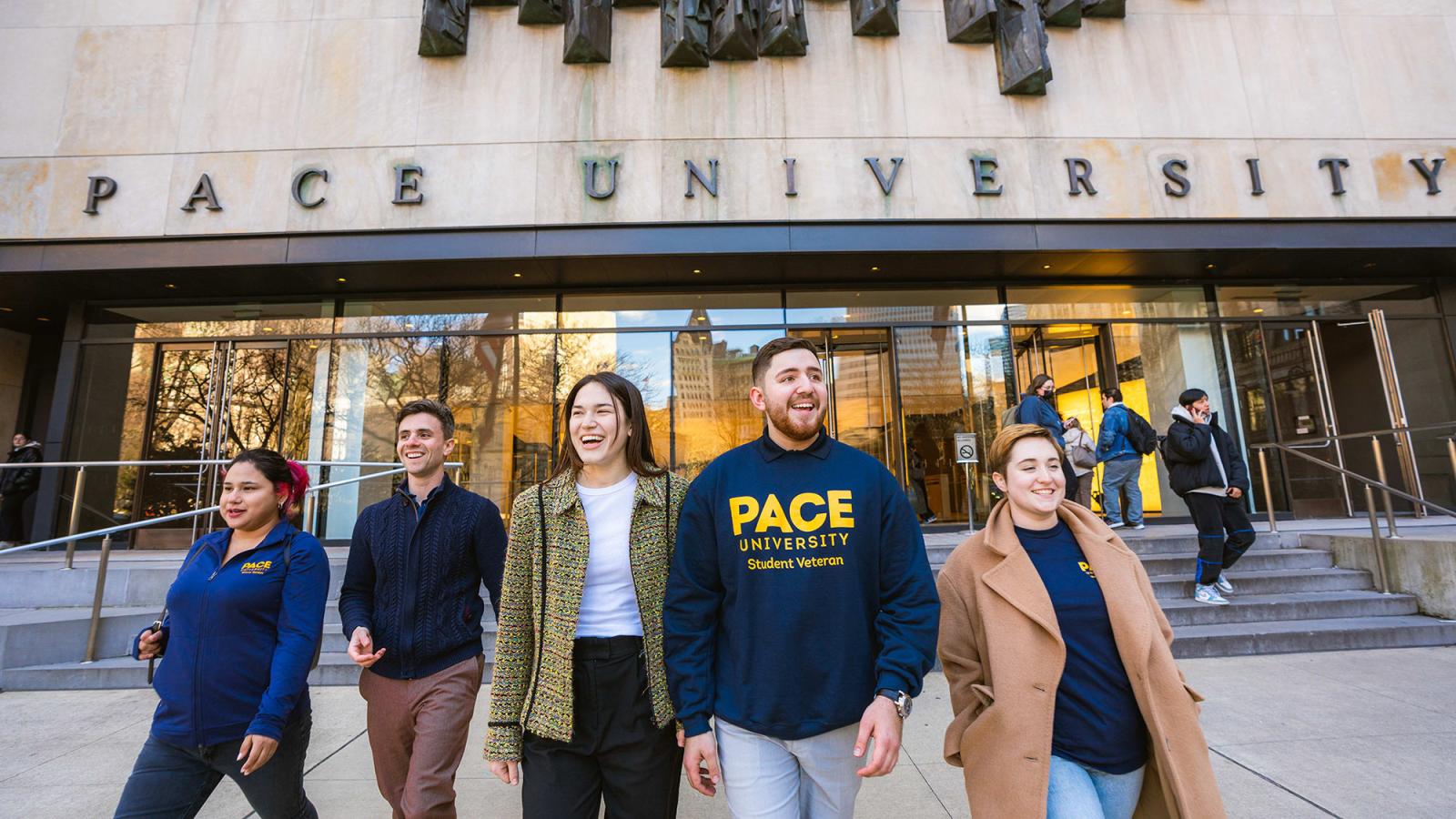
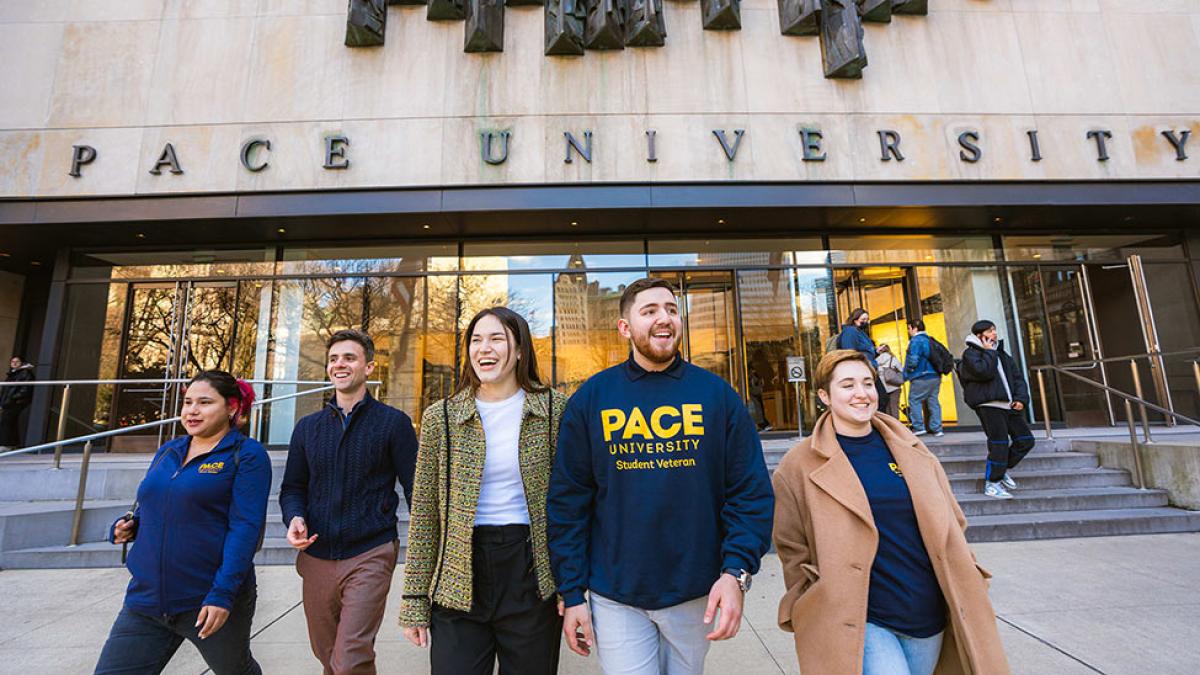
Pace University Ranks Third in New York State
For the third consecutive year, Military Times has named Pace University to its list of best schools for military service members and veterans.
In being named to the 2023 Best for Vets: Colleges rankings, Pace placed third out of 29 institutions state-wide, ninth among private colleges nationwide, and 66 overall.
The ranking is an affirmation of the impact of Pace’s efforts in fostering a welcoming environment for all military veterans and assisting them in reaching their educational goals. It continues Pace’s recent upward trajectory as the university went from 287 to 124 in 2022.
“We are deeply committed to supporting the student veterans at Pace University, and so it’s a real honor to be recognized for that work by Military Times,” said Pace President Marvin Krislov. “More than 200 of our students, across all three of our campuses, have volunteered to serve in America’s armed forces. They are a special and valued part of our community, and we’re pleased that they chose to pursue their education with us. We’re grateful for their service, and for this recognition.”
This year, 325 schools made the list – up nearly 5% over last year. Student success metrics – notably, GPA, retention, persistence, and graduation rates -- were the most important factors in determining the ranking of schools on the list, followed closely by the range of military-specific resources and the level of financial assistance offered. Admissions and registration policies, human resources and assorted miscellaneous considerations also factor into the scoring rubric.
“Student veterans contribute to the diversity and campus life here at Pace University,” said COL (Ret) Peter Riley, director of Pace Office of Veterans Services. “Hard work, authentic student care, accountability, and a heartfelt commitment to achieving success pays off. I am proud of this recognition and the awareness of what we provide for this important population of students.”
Pace recognizes the commitment our veterans have demonstrated to our country and are firmly committed to assisting veterans, active duty, and reserve service members in advancing their careers through higher education. Pace provides specialized and support services to over 200 veterans and dependents across its three campuses.
Pace’s special services for veterans include:
- Academic resources such as tutoring and professional writing assistance
- A specialized “University 101 for Veterans,” introductory course meant to address the experiences of veterans in higher education
- Counseling and disability services
- Financial assistance such as the Yellow Ribbon Program, Veteran Tuition Scholarship Program, Army Tuition Assistance & Air Force Tuition Assistance program
- Career services
- A website, Veterans, which lists resources specifically for veterans
- An active Pace Student Veteran Association, a chapter to the national Student Veterans of America organization
The university also offers a Veteran Student Center on both the New York City and Pleasantville campuses. The center serves as a one-stop resource center providing a study and gathering space where Pace student veterans and dependents can connect with others who have served and those who want to support them.
Neath Williams '24 spent over 20 years as a Navy combat medic on active duty and in the reserves before enrolling. Now he’s working on his Master of Arts in Communications and Digital Media through the robust online program Pace offers and is active in the Arts and Veterans communities in and around New York City.
“Student veterans have a holistic view of the importance of their education,” said Williams. “Most have goals set for after school, and they’re focused on that. They may be more focused on learning the actual content rather than on passing the class. This is the stuff we came here for, and Pace provides the resources for us to be successful.”
To view the full rankings visit the 2023 rankings.
About Pace University
Since 1906, Pace University has been transforming the lives of its diverse students—academically, professionally, and socioeconomically. With campuses in New York City and Westchester County, Pace offers bachelor, master, and doctoral degree programs to 13,600 students in its College of Health Professions, Dyson College of Arts and Sciences, Elisabeth Haub School of Law, Lubin School of Business, Sands College of Performing Arts, School of Education, and Seidenberg School of Computer Science and Information Systems.
About Military Times
The Military Times is the trusted source for independent news and information for service members and their families. The military community relies on Air Force Times, Army Times, Marine Corps Times, and Navy Times for reporting on everything important to their lives, including branch-specific news, pay, benefits, finance, education, health care, recreational resources, retirement, promotions, product reviews, and entertainment. Military Times is owned by Sightline Media Group. To learn more, visit the Military Times.
